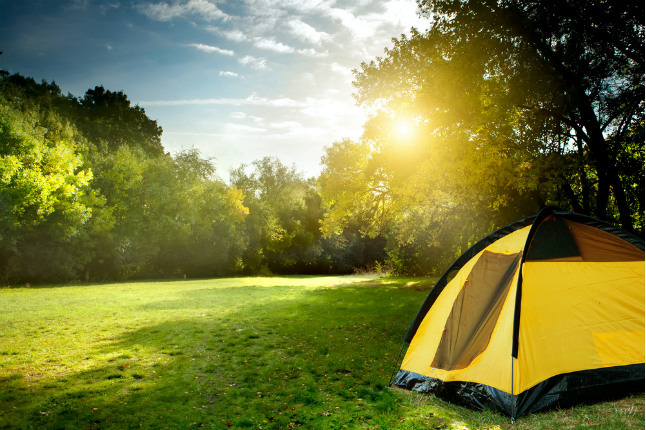Eight Essential Tips For New Campers
A tent, sleeping bag and marshmallows alone won't be enough for a good first-time camping trip. With more time outside, you'll also have more exposure to elements such as rain, wind, bugs and high or low temperatures.
For a great trip, you'll need to do more preparation, planning and research than for your average excursion. But where should you start? To help you out, we've come up with eight essential tips that can get you on the right track.
Don't Forget Water
While it may sound obvious, people often forget that drinking water is not always available in campgrounds (or in the backcountry, for that matter). Make sure to check with local officials so you know what supplies you'll need. The general rule is to have one gallon of water per person per day.
If you'd rather drink from local streams or rivers, make sure to carry the proper purification equipment. Numerous products are available, ranging from water bottles with internal filters to ultraviolet light pen purifiers.
Use a seasonally appropriate sleeping bag
Make sure to check nighttime conditions at your campground, as they can vary widely from daytime highs. While a lighter bag may work well in the summer, a heftier bag will be required for colder months. A temperature rating is available on each sleeping bag, and you should choose one based on the coldest temperature you expect to encounter.
The type of fill is also important. While down fills are light and breathable, heavier synthetic-filled bags are generally best for damp, cold conditions.
Remember a sleeping pad
The surest way to wake up with a sore back and a poor night's sleep is to forget your sleeping pad. Not only do sleeping pads provide great cushioning against the hard, rocky ground, but they also help keep you warm.
Dress for the conditions
Depending on weather, bugs and your activity, you'll need to choose appropriate clothes. Different fabrics—including wool, synthetic and cotton—work best in different conditions. For the best experience, educate yourself on what to wear and shop accordingly.
Layering can also be key to ensuring comfort, as it allows you to add or remove clothing quickly, based on the conditions.
Bring a generous supply of insect repellent
Bugs are a part of the outdoor experience, no matter the location. The solution to avoiding mosquitos, ticks and other pests is to diligently apply insect repellant.
Minimize your impact
The organization Leave No Trace provides great information on how to leave your campground as you found it. This will help keep the area clean and protected for wildlife and other campers. Some basic tips include walking single file on trails, sticking to established roads and trails and not leaving trash at the campsite. Knowing how to properly put out campfires is another essential skill.
Don't rely on your cell phone
Campgrounds and parks are notorious for poor reception. Carrying a paper map of the area is helpful for navigation, and make sure to know the location of ranger stations in case you need help.
Check in with park officials before you head out
These professionals know the area better than anyone else and often lead search parties for lost or missing campers. As a safety precaution, check in with them when you arrive and at the end of your trip. This is also a great time to pick up maps and find out about any active alerts in the campground, such as storm warnings.
